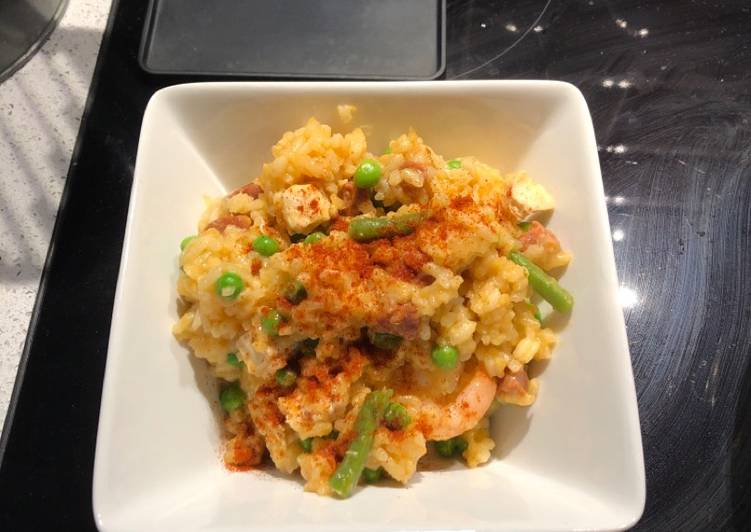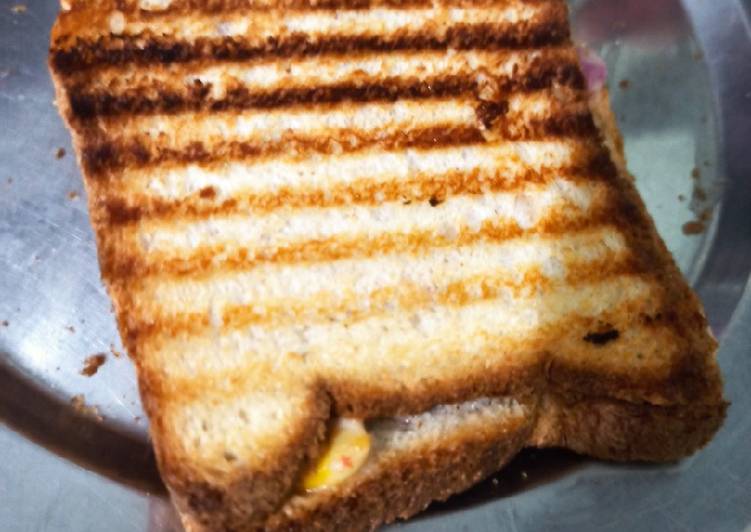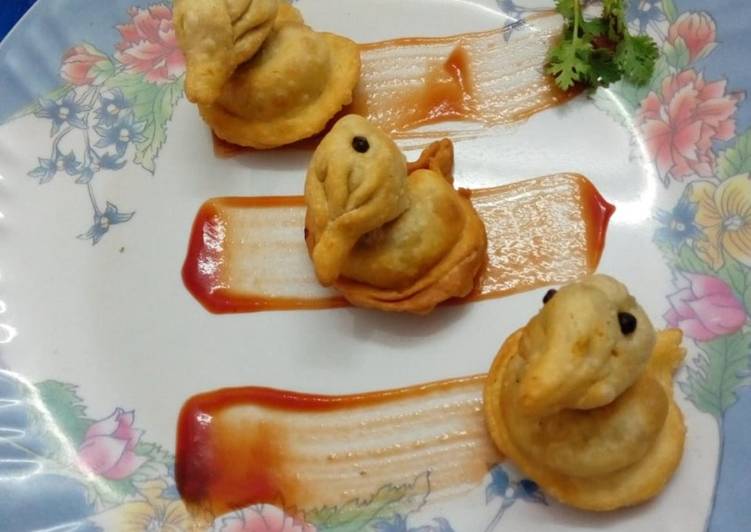
Hello everybody, I hope you are having an amazing day today. Today, we’re going to make a distinctive dish, paella. One of my favorites food recipes. This time, I’m gonna make it a bit tasty. This is gonna smell and look delicious.
Paella is a typical Spanish recipe and is traditionally cooked in a "paellera" - a round flat pan with two In many Spanish villages, especially in coastal areas, they use a giant paellera to cook a paella on. Nourishing, vibrant, and served without pretension, paella has held a place of honor and practicality in Spanish homes for centuries. This seafood paella from Valencia in Spain, called paella de marisco, is full of fresh seafood - squid, mussels, crayfish, prawns and clams.
Paella is one of the most popular of recent trending foods in the world. It is easy, it’s fast, it tastes delicious. It is appreciated by millions every day. They’re fine and they look wonderful. Paella is something which I have loved my entire life.
To get started with this particular recipe, we must first prepare a few components. You can have paella using 13 ingredients and 7 steps. Here is how you cook it.
Ingredients
The ingredients needed to make Paella:
- Make ready 1 x Brown Onion
- Make ready 3 x Cloves of Garlic
- Get 1 x Red Pepper
- Take Paella Rice (Roughly 300g)
- Make ready Green Beans
- Get Peas
- Make ready Chicken Breast
- Get Chorizo
- Take Prawns
- Get Paprika
- Prepare Garlic Powder
- Get Onion Granules
- Take 1 litre Chicken Stock
Paella mixta: mixed meat and seafood. Fideuàis: a Paella that uses pasta instead of rice. Many paellas feature various meats and seafoods, but vegetarian paella can be a revelation. This version is fully loaded with a rainbow of seasonal vegetables cooked into a saffron and.
Instructions
Steps to make Paella:
- Fry the onion & garlic until the flavours begin to come through. Medium heat throughout.
- Add the chorizo to the pan, and allow to sizzle away. After a few minutes, combine.
- Add the paella rice to the mix and cook for a couple of mins.
- Next, add the chicken breast or thigh and allow the mixture to slightly stick.
- Once all the chicken has had time to briefly turn white, add the chicken stock slowly to the dish. Once all stock has been added, throw in the green beans and let it simmer away. Optional: Add garlic powder, onion granules & paprika here.
- Once the stock has reduced, add the prawns and the peas. Both these ingredients won’t take long so should be thrown in around 5-10mins pre-serving.
- Serve. Garnish with paprika.
Paella is a traditional dish of Spain. Its home is Valencia, but variations exist in the different Spanish Traditionally, the paella is cooked out of doors, over a wood fire. To make a paella, first sauté meats. This paella recipe is easy and delicious. Find more dinner inspiration at BBC Good Food.
So that is going to wrap this up for this special food paella recipe. Thank you very much for reading. I am sure that you can make this at home. There’s gonna be interesting food at home recipes coming up. Remember to save this page in your browser, and share it to your loved ones, friends and colleague. Thank you for reading. Go on get cooking!
Print this page

